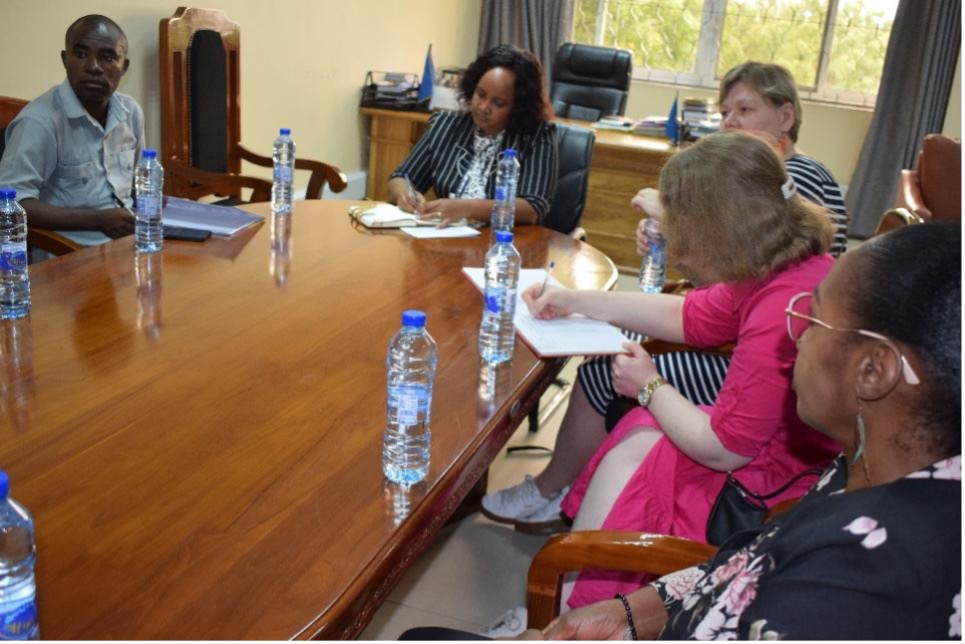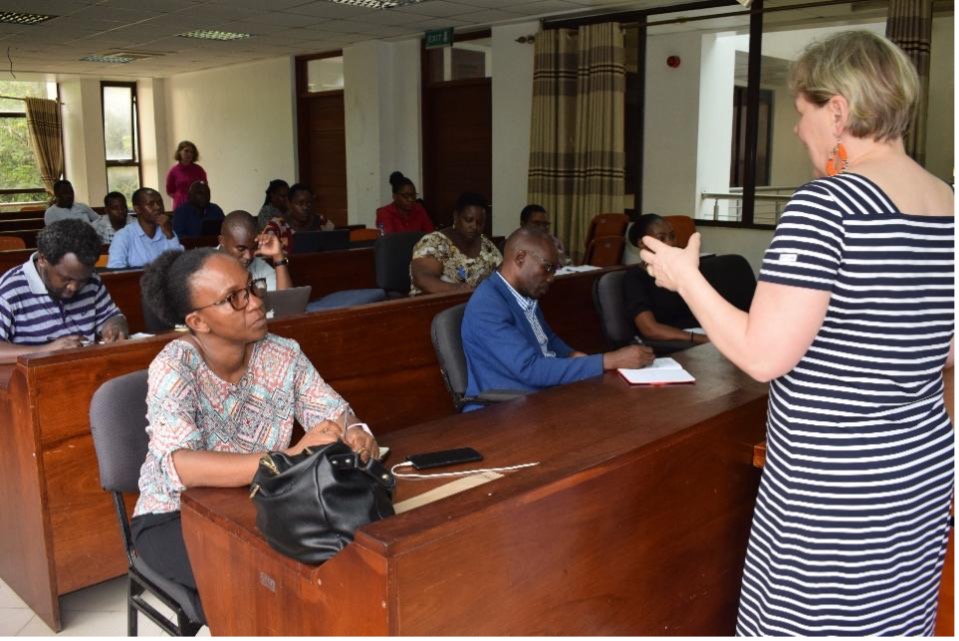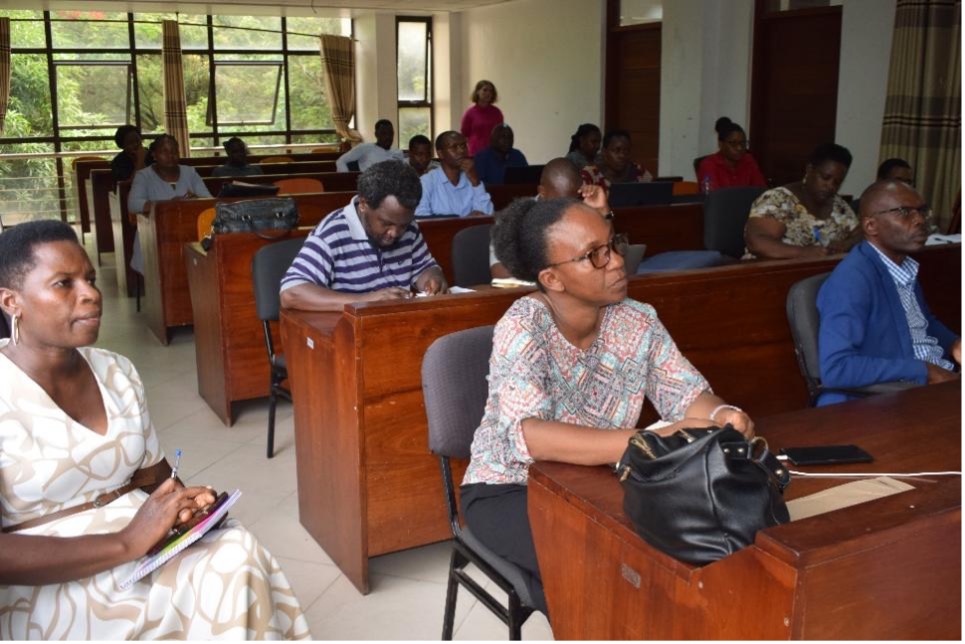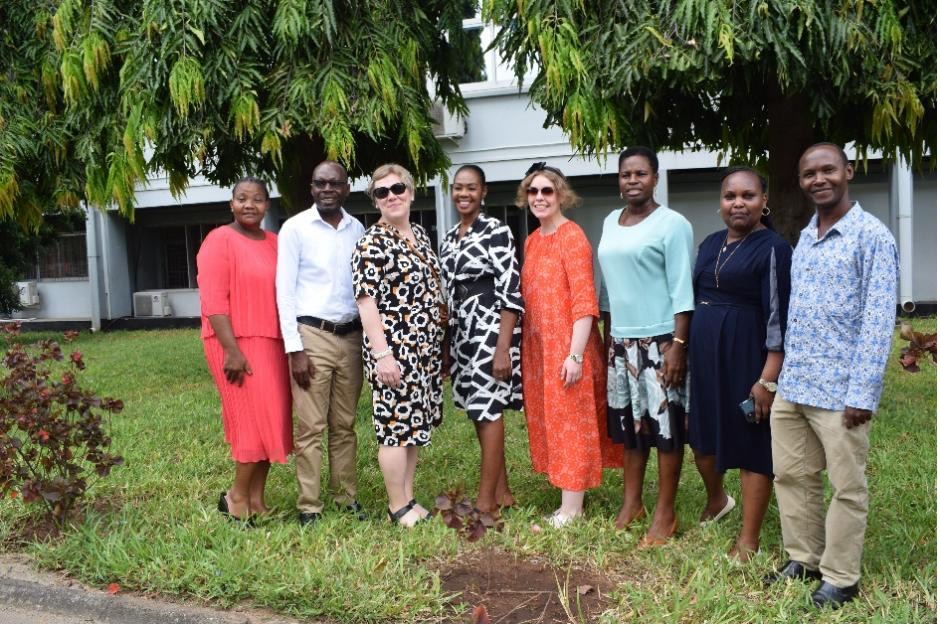News
Future teacher education for sustainable development (FUTE) team conducts a working session to lay the project foundation
Sun, 17.Mar.2024 13.34The Future Teacher Education for Sustainable Development (FUTE) team conducted a four-day working session at DUCE from March 4th to March 7th, 2024. The purpose of this meeting was to organize the activities of the project cycle and establish the foundation for the initiative.
Speaking during the courtesy call, the overall Coordinator, Prof. Sari Havu-Nuutinen said the project aims at fostering the teacher educators and student teachers’ competence and best practices for sustainability in Finland, Namibia, and Tanzania. She further said, this collaborative initiative intends to advance and strengthen teacher educators' conceptual, methodological, and pedagogical competence to promote education for sustainable development in teacher education.
In her welcoming note, the Deputy Principal – Academic, research and Consultancy, Dr. Christina Raphael said the management supports the partner institutions to strategically work more closely on areas of priorities such as innovations, publications, curriculum development, postgraduate supervision and staff development.
The working session was attended by various team members, including Dr. Ella Suortt from Finland, Prof. Saki Ipinge and Dr. Eveline Anyolo from University of Namibia, as well as several members from DUCE, namely, Dr. Rehema Mwakabenga, Dr. Janeth Kalinga, Dr. Katherine Fulgence, Dr. Thadei Sagamiko, and Dr. Joseph Njiku.
The project coordinator in Tanzania, Dr. Rehema Mwakabenga, outlined the project's plan to progress through three cycles. The first cycle involves capacity building through providing professional development training for teacher educators on sustainable development goals. The second cycle focuses on updating and redesigning courses to align with sustainable development targets, with teacher educators working in small teams at each campus. The third cycle involves implementing and assessing mini-projects related to sustainability education in local communities, based on the learning outcomes from the courses.
The project is funded by the Ministry of Foreign Affairs in Finland under the Higher Education Partnership (HEP). The University of Eastern Finland serves as the Coordinating Institution, with partner institutions including the University of Namibia (UNA) and Dar es Salaam University College of Education (DUCE).
Other News
Fri, 17.Jan.2025 : UDSM Vice Chancellor urges contractors to increase workforce and adhere to contract schedulesWed, 18.Dec.2024 : Dr. Jakaya Kikwete confers degrees to DUCE graduates and urges continued excellence in research and publication
Thu, 12.Dec.2024 : Dr. Biteko participates in UDSM Marathon, pledges support for construction of Student Centre
Thu, 12.Dec.2024 : The Assistant Coordinator of the HEET Project visits DUCE to evaluate the progress of construction and rehabilitation activities
Thu, 12.Dec.2024 : Social and Gender Specialists evaluate the progress of the HEET construction site


, and her team members pictured shortly after their arrival at DUCE..jpg)
 signing the visitors’ book.jpg)




 in a group photo with FUTE team and invited DUCE staff..jpg)